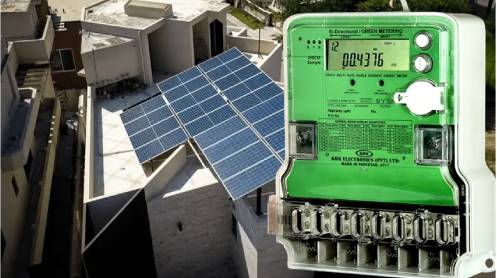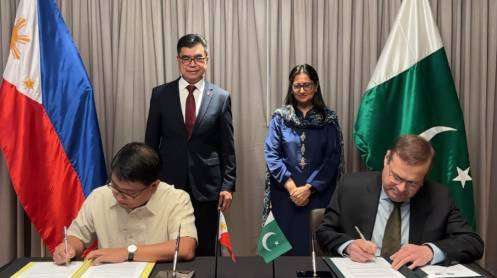ISLAMABAD: The federal cabinet is set to be briefed shortly on a revised national solar policy that proposes a shift from net metering to gross metering, with a significantly reduced buyback tariff for new rooftop solar users.
Under the proposed policy, consumers installing rooftop solar panels after the new regulations come into effect will receive a buyback rate equal to one-third of the base electricity tariff. For FY2025-26, with NEPRA setting the base tariff at Rs34 per unit, the proposed buyback rate stands at Rs11.33 per unit. This may rise to Rs13–14 per unit after final cabinet review, officials from the Power Division stated.
Unlike net metering, where consumers are billed for the net energy consumed and credited for surplus sent to the grid, gross metering pays users for all electricity generated while billing them separately for all electricity consumed. Two meters will track both separately.
Current net-metering users—estimated to have contributed 6,500 MW to the grid—will continue under their existing agreements, selling electricity at around Rs27 per unit. However, new installations will fall under the gross-metering regime, triggering concerns of a dual treatment system that may mirror disparities seen in Pakistan’s gas sector.
Officials argue that net metering has created a Rs103 billion burden on non-solar grid consumers, pushing the government to adopt gross metering to stabilize the power tariff system. The new solar policy also targets adding 8,500 MW of solar power to the national grid through the upcoming Indicative Generation Capacity Expansion Plan (IGCEP), pending NEPRA approval.
The policy’s final shape will be determined after the Power Division’s formal presentation to Prime Minister Shehbaz Sharif and the federal cabinet.
Story by Khalid Mustafa







